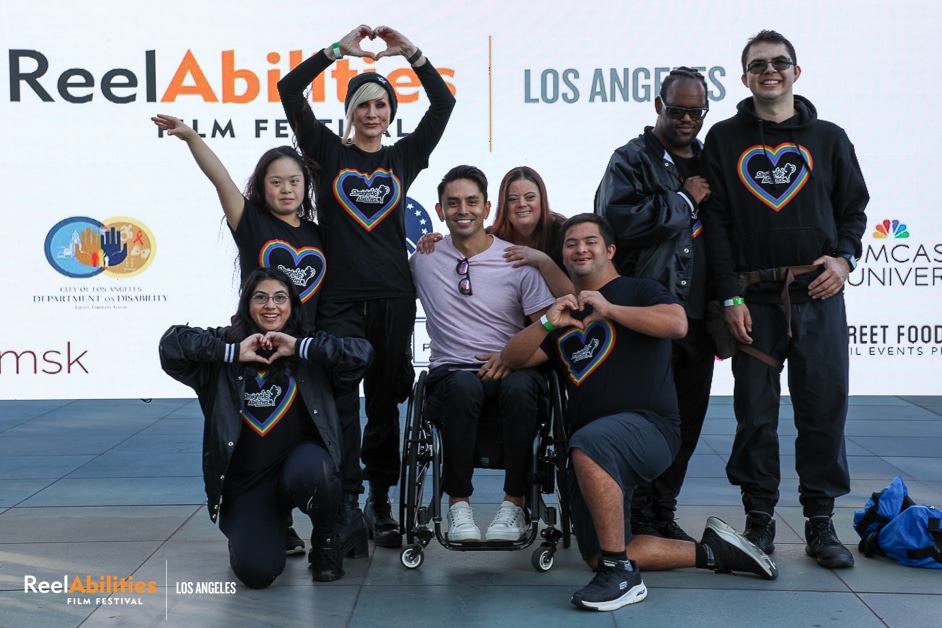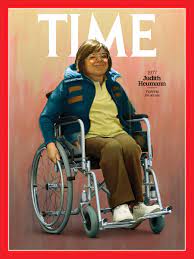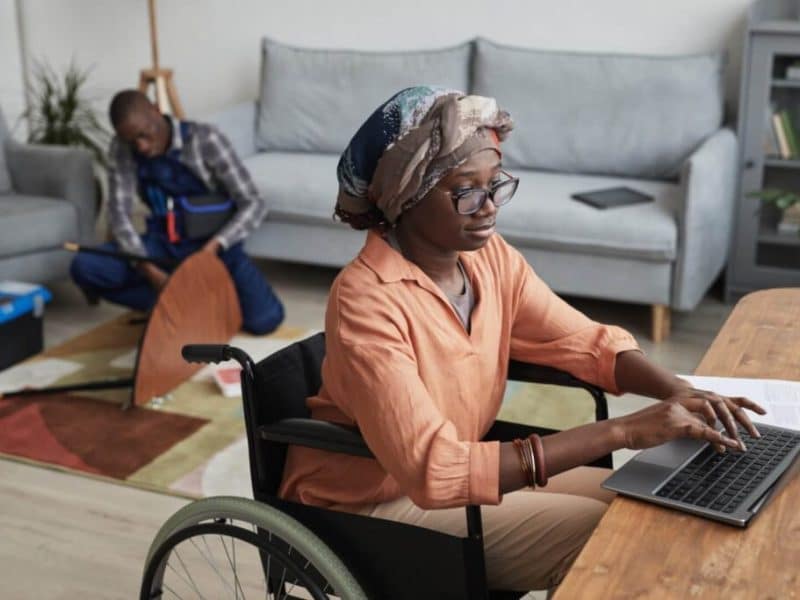
Movies are enjoyed as a form of entertainment and escapism, with audiences often identifying with what and who they see on screen. Therefore, representation of all individuals matters. Enter ReelAbilities.
The ReelAbilities Film Festival is the largest festival in the US dedicated to promoting awareness and appreciation of the lives, stories, and artistic expressions of people with disabilities. Founded in New York City in 2007, the festival presents award-winning films by and about people with disabilities. Post-screening discussions and other engaging programs bring together the community to explore, discuss, embrace, and celebrate the diversity of our shared human experience. Initiated in New York at the Marlene Meyerson JCC Manhattan and founded by Anita Altman and Isaac Zablocki, the festival was the first of its kind to present a series of this kind. As the festival progresses, screenings are appearing at multiple venues, some now following by discussions that engage the community in promoting inclusion and celebrating diversity, while providing accessible conditions to match the varying needs of this multi-layered society.
Why is this festival necessary? An estimated 1.3 billion people – or 16% of the global population – currently live with a significant disability. And this number is growing alongside the growth in noncommunicable diseases, as well as the longevity of life. people living longer. Currently, as many as 1 and 4 adults (26%) in the United States have some form of disability.
Yet, according to Isaac Zablocki, Director and Co-Founder of the New York ReelAbilities Film Festival, “Disability is still in the fringes. There is so much stigma, mistreatment, and lack of inclusion, it is crucial for new, more inclusive, better depicted stories to be told and for people to get over their prejudice and see that there is more out there than what Hollywood has to offer,” Zablocki continues, “We hope to bring disability to the mainstream and create a leveled playing field, where there is room for everyone”.
With a growing disability population, it is no wonder that ReelAbilities has expanded to numerous other cities, states, and countries. Current locations include Boston, Chicago, Cleveland and Columbus Ohio, Denver, Houston, Los Angeles, Mexico City, Minneapolis-St. Paul, New Jersey, New York, Northern Virginia, Pittsburgh, Portland, Richmond, Salt Lake City, San Diego and Toronto, Canada.
Now in its 15th year, the Festival has a little something for everyone with Narrative, Animated, Family Friendly, and Documentary Shorts, Narrative Features, Full-length Documentaries, Question and Answer sessions, Live Streams, and Panel Discussions. These films also encompass a wide range of disabilities such as, but not limited to: Spinal Cord Injuries, Mobility Impairments, Autism, Hearing Impaired/Deaf, Depression, PTSD, Bipolar Disorder, ADHD, Down Syndrome, ALS, and Little People.
Why is Reelabilities New York important to the community? “ReelAbilities is the largest disability arts event in the city and truly brings the community together. Not only does it give a space for the disability community to join together and be celebrated, but also brings folks from outside the community to bridge gaps in our society, Zablocki adds. “We also raise the standard and help shape new levels of accessibility which trickles down to all access work being done throughout the world. Finally, these films need to be seen. The New York Community, as progressive as it might be, does not see enough quality disability inclusion on the screen, and without ReelAbilities, many of these films would not get seen”.

The 2023 Festival also paid special tribute to Judith Heumann who, according to The Washington Post, was the mother of disability rights -and she’s a badass” Having passed away in Washington, D.C. on the afternoon of March 4, 2023. Judy was at the forefront of major disability rights demonstrations, helped spearhead the passage of disability rights legislation, founded national and international disability advocacy organizations, held senior federal government positions, co-authored her memoir, Being Heumann, and its Young Adult version, Rolling Warrior, and was featured in the Oscar-nominated documentary film, Crip Camp: A Disability Revolution. Judy was instrumental in developing and implementing national disability rights legislation, including Section 504, the Individuals with Disabilities Education Act, the Americans with Disabilities Act (ADA), the Rehabilitation Act, and the UN Convention on the Rights of Persons with Disabilities. From 2002-2006, she served as the first Advisor on Disability and Development at the World Bank, and from 2010-2017, during the Obama Administration, she worked as the first Special Advisor for International Disability Rights at the U.S. State Department. She also was appointed as Washington, D.C.’s first Director for the Department on Disability Services. For a concise, yet humorous look at the 504 Sit In & more Information about Judith Heumann checkout this additional link: https://www.cc.com/video/2p86bg/drunk-history-judy-heumann-fights-for-people-with-disabilities
Additional films that garnered significant attention include:
The Short Blocks at ReelAbilities known as ReelShorts, from the Family Friend Block to empower kids, to the witty take on “Papageno” from Mozart’s “The Magic Flute”
The Documentary Feature, No Ordinary Campaign, follows the journey of White House power couple Brian Wallach and Sandra Abrevaya, who found their world upended by Brian’s diagnosis of ALS at 37, on the same day they brought their second daughter home from the hospital. In the face of a brutal disease that threatens to take everything from them, Brian and Sandra embark on a journey to reclaim their future and make a difference for millions seeking a voice in a broken healthcare system.
Meg Zucker, who was born with one finger on each hand, shortened forearms, and one toe on each misshapen foot, caused by a genetic condition called ectrodactyly, discussed her book, Born Extraordinary: Empowering Children With Differences and Disabilities, via live stream where she talked about parents swallowing their pride, not being too overprotective, and the phrase her parents used: “Let go, and let live.” –Meg Zucker
Although most of these may be labeled by society as “disabled” films, after watching many of the films online, they demonstrated that they were more about the human experience than disability. Zablocki summed it up: “Bottom line: Films are an easily accessible art form, and we choose movies that speak broadly and have top production quality. Good stories speak universally and can touch anyone. We hope people will come for the films and stay for the impact”.
To view a list of upcoming festivals, click here.
About the Author: Dawn Grabowski is a fellow with The Loreen Arbus Accessibility is Fundamental Program, a fellowship created with Women’s eNews to train women with disabilities as professional journalists so that they may write, research and report on the most crucial issues impacting the disabilities community. Dawn is also an Actress, Filmmaker, Content Creator, Speaker, Voiceover Artist, Producer, & Sit-Down Comic because she’s not qualified to stand. Born with Central – Nervous Disorder Cerebral Palsy, the industry and the world label her as a Person/Performer With Disability (PWD), but she believes labels are for jars and not for people. IG Handle: @grabowskidawn


